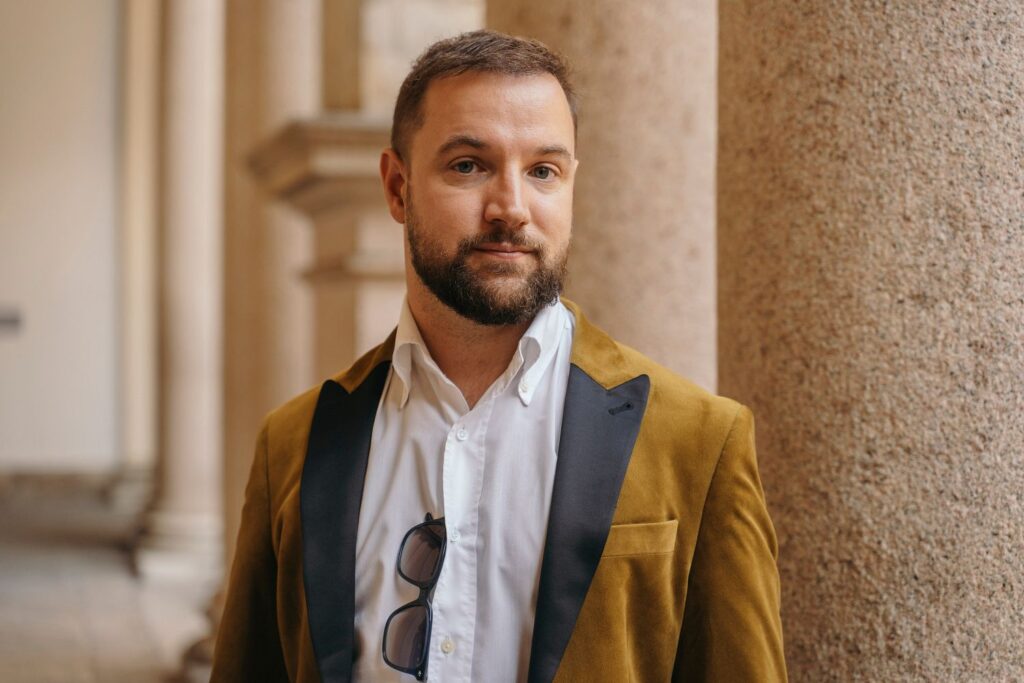Luxury brands are facing a demand unlike anything before. Shoppers now expect not just beauty but real action on values and ethics. In fact, Gen Z and Millennials are driving a huge shift by choosing brands with proven sustainability and digital innovation. You might think this means luxury is losing its classic touch. But the truth is, these changes are unleashing a new era of exclusivity and personal connection that is changing the definition of luxury itself.
Table of Contents
- Embrace Sustainable Luxury Practices
- Leverage Digital Transformation In Customer Engagement
- Personalize Luxury Experiences With Data Analytics
- Utilize Influencer Partnerships For Authenticity
- Implement Omnichannel Strategies For Seamless Shopping
- Focus On Exclusive, Limited-Edition Offerings
- Innovate With Virtual Reality And Augmented Reality
Quick Summary
| Takeaway | Explanation |
|---|---|
| Embrace sustainability as a luxury standard | Modern luxury consumers expect environmental responsibility and ethical practices integrated into products and brand strategy. |
| Leverage digital tools for personalized experiences | Use AI and data analytics to create tailored customer interactions that reflect individual preferences. |
| Focus on authentic influencer partnerships | Build genuine relationships with influencers who can tell meaningful brand stories and engage niche audiences effectively. |
| Develop seamless omnichannel strategies | Integrate physical and digital shopping experiences to provide consumers with a cohesive customer journey across platforms. |
| Create exclusive, limited-edition products | Position limited releases as cultural moments that resonate emotionally with consumers and reflect brand values. |
1: Embrace Sustainable Luxury Practices
Sustainability has transformed from a peripheral concept to a critical strategic imperative for luxury brands worldwide. Modern consumers demand more than aesthetic excellence they want ethical accountability and environmental responsibility from their premium purchases.
The luxury sector is experiencing a profound paradigm shift where sustainability is no longer optional but fundamental. According to research from Emerald Insight, luxury brands are categorizing their sustainability approaches through complex strategic frameworks that demonstrate sophisticated environmental commitment.
Key sustainability strategies emerging in luxury markets include:
- Transparent supply chain management
- Carbon neutral manufacturing processes
- Circular design principles
- Ethical material sourcing
- Advanced recycling technologies
Consumers are increasingly voting with their wallets by selecting brands that demonstrate genuine environmental commitment. Younger luxury consumers particularly Gen Z and Millennials are driving this transformation by prioritizing brands with robust sustainability credentials.
The economic incentive for sustainable luxury is substantial. Brands investing in green technologies and ethical practices are seeing significant market advantages. They attract conscientious consumers, reduce long term operational costs, and position themselves as forward thinking industry leaders.
Successful sustainable luxury requires a holistic approach that integrates environmental considerations into every aspect of brand strategy. This means reimagining product design, manufacturing, packaging, and distribution through an ecological lens. Innovation becomes the cornerstone of sustainable luxury, transforming traditional practices into cutting edge solutions that respect both consumer expectations and planetary boundaries.
2: Leverage Digital Transformation in Customer Engagement
Digital transformation has revolutionized how luxury brands connect with their high end clientele. The landscape of customer engagement is rapidly evolving beyond traditional marketing approaches, demanding sophisticated technological integration and personalized digital experiences.
As consumer expectations become increasingly sophisticated, luxury brands must reimagine their digital strategies. Research from McKinsey indicates that successful digital transformation is not merely about implementing technology but creating seamless, emotionally resonant customer journeys.
Key digital engagement strategies for luxury brands include:
- Immersive augmented reality product experiences
- Personalized AI driven recommendations
- Advanced predictive customer analytics
- Seamless omnichannel communication platforms
- Exclusive digital membership programs
Artificial intelligence and machine learning are becoming critical tools for understanding and anticipating customer preferences. These technologies enable brands to create hyper personalized interactions that feel intuitive and tailored to individual client needs.
Mobile platforms and social media channels are no longer supplementary but primary engagement touchpoints. Gen Z and Millennial consumers expect sophisticated digital interactions that blend storytelling, personalization, and instant accessibility. Luxury brands must develop digital ecosystems that feel simultaneously exclusive and accessible.
Successful digital transformation requires a holistic approach that integrates technology with emotional intelligence. The goal is not just technological implementation but creating digital experiences that maintain the essence of luxury personal connection and exceptional service.
3: Personalize Luxury Experiences with Data Analytics
Data analytics has emerged as a transformative force in luxury brand strategy, enabling unprecedented levels of personalized customer experience. Modern luxury consumers expect interactions that feel uniquely crafted to their individual preferences and lifestyle aspirations.
According to McKinsey, fashion and luxury companies leveraging advanced data analytics can achieve remarkable revenue increases by creating hyper targeted experiences. This represents a significant shift from traditional mass marketing approaches.
Key data analytics strategies for luxury brands include:
- Predictive consumer behavior modeling
- Real time preference tracking
- Advanced customer segmentation techniques
- Emotional intelligence driven insights
- Personalized recommendation algorithms
Artificial intelligence and machine learning technologies are revolutionizing how luxury brands understand and anticipate customer desires. These sophisticated tools enable brands to move beyond demographic segmentation into nuanced psychological profiling.
The most successful luxury brands will treat data not merely as a technical resource but as a strategic asset for creating emotional connections. This means developing analytics capabilities that respect consumer privacy while delivering genuinely personalized experiences.
Ethical data utilization becomes paramount. Luxury brands must balance technological sophistication with transparency and consumer trust. Intelligent data analytics should feel like a concierge service anticipating needs rather than an invasive tracking mechanism.
Customer lifetime value is no longer about transactional metrics but about creating deep emotional resonance through precisely calibrated personalized interactions. Brands that master this delicate balance will define the next generation of luxury consumer engagement.
4: Utilize Influencer Partnerships for Authenticity
Influencer marketing has evolved dramatically in the luxury sector, transforming from simple product endorsements to strategic brand storytelling partnerships. Modern luxury brands recognize that authenticity is the critical currency in building meaningful consumer connections.
According to research from Georgia State University, authenticity in influencer marketing hinges on several critical dimensions including expertise, transparency, and genuine brand alignment. The most successful partnerships transcend transactional relationships and create narrative ecosystems that resonate with sophisticated consumer expectations.
Key considerations for luxury influencer partnerships include:
- Deep values alignment with brand philosophy
- Demonstrated expertise in luxury domains
- Genuine passion for brand narrative
- Consistent personal brand credibility
- Meaningful audience engagement metrics
Micro and nano influencers are becoming increasingly valuable for luxury brands. These content creators offer more intimate, credible connections with niche audiences compared to mega influencers with massive but potentially less engaged followings.
The future of influencer marketing in luxury requires moving beyond superficial aesthetics toward meaningful storytelling. Brands must seek collaborators who can articulate complex brand narratives, demonstrating deep understanding of product heritage, craftsmanship, and cultural significance.
Technology is also reshaping influencer partnerships. Advanced analytics now enable brands to measure not just reach but genuine sentiment and audience resonance. Emotional intelligence becomes as important as numerical metrics in selecting and evaluating influencer collaborations.
Successful luxury brands will treat influencer partnerships as sophisticated creative collaborations, not mere marketing transactions. The goal is creating immersive brand experiences that feel authentic, personal, and truly compelling to discerning consumers.
5: Implement Omnichannel Strategies for Seamless Shopping
Omnichannel strategies have become a critical differentiator for luxury brands seeking to create holistic customer experiences that transcend traditional retail boundaries. Modern consumers expect seamless interactions across physical and digital platforms, demanding sophisticated integration of technology and human touch.
Research from University of Michigan highlights how luxury brands like Burberry and Herms are pioneering innovative approaches to omnichannel integration, maintaining brand exclusivity while enhancing accessibility.
Key elements of effective omnichannel luxury strategies include:
- Synchronized digital and physical inventory systems
- Personalized cross platform customer recognition
- Consistent brand experience across touchpoints
- Real time customer interaction capabilities
- Integrated customer data management
Phygital experiences are transforming how luxury brands engage with customers. This approach blends physical and digital interactions, creating immersive environments that feel simultaneously high tech and high touch. Advanced technologies like augmented reality and AI powered personalization enable brands to craft unique customer journeys.
Successful omnichannel strategies require breaking down traditional organizational silos. Luxury brands must develop integrated teams that can collaborate across digital, marketing, sales, and customer experience departments. Technological infrastructure becomes as important as physical retail spaces in delivering exceptional customer experiences.
Customer data serves as the critical backbone of these sophisticated omnichannel approaches. Brands must develop robust data management systems that respect consumer privacy while enabling personalized, anticipatory service. The goal is creating experiences that feel simultaneously effortless and extraordinarily tailored to individual customer preferences.
6: Focus on Exclusive, Limited-Edition Offerings
Luxury brands are reimagining exclusivity through meticulously crafted limited-edition offerings that transform product releases into cultural moments. These strategic collections go beyond traditional marketing approaches, creating profound emotional connections with discerning consumers.
According to research in the Journal of Consumer Behaviour, limited-edition advertising generates maximum impact when strategically positioned within emotional consumption contexts. This approach elevates products from mere commodities to coveted collector’s items.
Strategic considerations for limited-edition offerings include:
- Authentic narrative behind product creation
- Verifiable production scarcity
- Transparent provenance documentation
- Unique design or technological innovation
- Meaningful cultural or artistic collaboration
Generational preferences are dramatically reshaping limited-edition strategies. Younger luxury consumers seek deeper meaning beyond visual aesthetics, demanding products that represent authentic storytelling and demonstrate cultural significance.
Technology enables unprecedented personalization in limited-edition offerings. Advanced manufacturing techniques like 3D printing and customizable production allow brands to create hyper individualized experiences that feel simultaneously exclusive and personally meaningful.
Successful limited-edition strategies require precise execution. Brands must balance manufactured scarcity with genuine creativity, ensuring each release feels genuinely special rather than manipulative. The most compelling limited editions tell rich stories that resonate with consumers’ aspirational identities and cultural values.
7: Innovate with Virtual Reality and Augmented Reality
Virtual and Augmented Reality technologies are revolutionizing luxury brand experiences, transforming how consumers interact with premium products and services. Immersive digital environments are no longer futuristic concepts but essential strategic tools for engaging sophisticated consumers.
Research from Liverpool University reveals compelling evidence of AR and VR’s transformative potential in retail marketing, demonstrating significant positive correlations with customer engagement and brand loyalty.
Key considerations for AR and VR implementation include:
- Maintaining brand aesthetic integrity
- Creating genuinely immersive experiences
- Ensuring technological accessibility
- Preserving emotional brand connection
- Delivering measurable consumer value
Technological innovation allows luxury brands to transcend traditional physical limitations. Virtual showrooms enable global customers to experience products with unprecedented intimacy, while augmented reality platforms facilitate personalized interactions that feel simultaneously high tech and deeply human.
Luxury brands can leverage these technologies across multiple domains. From virtual fitting rooms that offer precise measurements to immersive brand heritage experiences that transport consumers into intricate brand narratives, AR and VR represent powerful storytelling platforms.
The most successful implementations will prioritize emotional resonance over technological complexity. Advanced digital experiences must feel intuitive, elegant, and aligned with the brand’s core aesthetic philosophy. By thoughtfully integrating these technologies, luxury brands can create next generation consumer engagement that feels both cutting edge and authentically connected.
Below is a comprehensive table summarizing the 7 key luxury marketing trends for 2025, providing an at-a-glance overview of the main strategies, core benefits, and examples covered in the article.
| Trend / Area | Main Strategy or Focus | Key Benefits / Outcomes |
|---|---|---|
| Sustainable Luxury Practices | Integrate ecological responsibility and ethics into all aspects | Attracts conscientious Gen Z/Millennials, market advantage |
| Digital Transformation in Engagement | Leverage AI, AR/VR, and mobile for personalized digital journeys | Enhanced emotional connection, seamless brand experiences |
| Personalization with Data Analytics | Use predictive analytics, segmentation, and real-time tracking | Hyper-targeted engagement, emotional customer resonance |
| Authentic Influencer Partnerships | Partner with credible, values-aligned influencers for storytelling | Deeper trust, meaningful audience reach and loyalty |
| Omnichannel Shopping Experience | Integrate digital and in-person touchpoints (“phygital” approach) | Consistent, effortless, tailored customer journey |
| Exclusive Limited-Edition Offerings | Craft authentic, scarcity-driven product collections | Emotional impact, aligns with aspiration and brand value |
| AR/VR Innovation | Develop immersive, interactive virtual experiences | Boosts engagement, enables next-gen storytelling |
Elevate Your Luxury Brand in 2025 with Psychology-Driven Innovation
As 2025 approaches, brands in the luxury space face new demands for authentic sustainability, hyper-personalization, digital transformation, and emotionally engaging experiences. The biggest challenge is translating these fast-moving trends into actionable, results-based strategies that appeal to today’s mindful and tech-savvy customers. Many marketers struggle to connect sustainability and innovation with the unique expectations of luxury clientele. They want genuine emotional responses from their consumers, yet personalization, data analytics, and omnichannel integration often fall flat without a deep understanding of buyer psychology.
Are you ready to move beyond trends and into tailored success? Let Corrado Manenti guide you. His approach merges the latest in luxury marketing—including sustainable practices, immersive digital strategies, and data-driven personalization—with proven psychological insights for lasting competitive advantage.

Experience what happens when detail-oriented expertise meets cutting-edge technology. Visit Corrado Manenti’s website now to discover bespoke consulting for the fashion and lifestyle sectors. The luxury market moves fast. Stay ahead of the curve and start transforming your strategy today.
Frequently Asked Questions
What are the key sustainability practices luxury brands are focusing on for 2025?
Luxury brands are emphasizing sustainable practices such as transparent supply chain management, carbon-neutral manufacturing, ethical material sourcing, and circular design principles to meet consumer demands for environmental responsibility.
How is digital transformation shaping customer engagement for luxury brands in 2025?
Digital transformation is leading luxury brands to adopt advanced technologies like AI for personalized experiences, immersive augmented reality, and seamless omnichannel communication, enhancing the way they connect with consumers.
What role does data analytics play in personalizing luxury consumer experiences?
Data analytics allows luxury brands to tailor experiences through predictive customer behavior modeling and real-time preference tracking, enabling more nuanced interactions that meet individual consumer needs and preferences.
How can luxury brands effectively utilize influencer partnerships?
Luxury brands can benefit from influencer partnerships by ensuring a deep values alignment with the brand philosophy, choosing influencers who genuinely resonate with their storytelling, and focusing on authentic engagement over mere product promotion.
Recommended
- The seven ways to launch your collection (AND your brand) on the market – Corrado Manenti
- Innovazione nei Brand Storici: Un Imperativo per la Sopravvivenza nel 2025
- Come Sviluppare una Strategia di Produzione Basata sulla Psicologia del Consumatore: La Guida Completa al Marketing delle Aspirazioni nella Moda – Corrado Manenti
- I sette modi per lanciare la tua collezione (E il tuo Brand) sul mercato – Corrado Manenti



